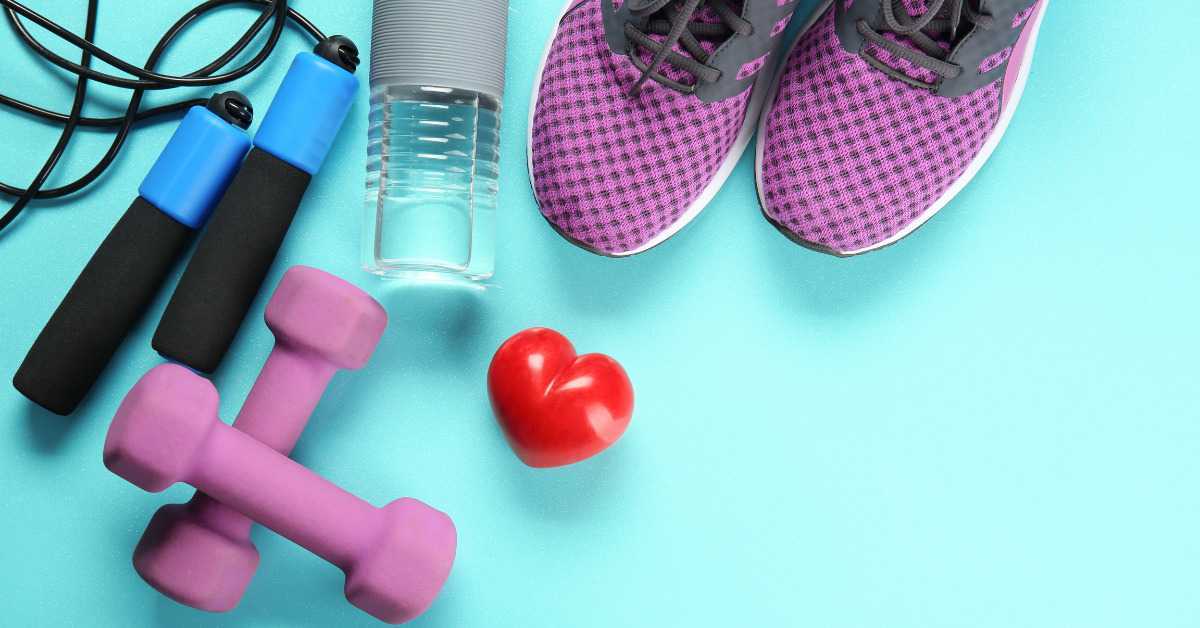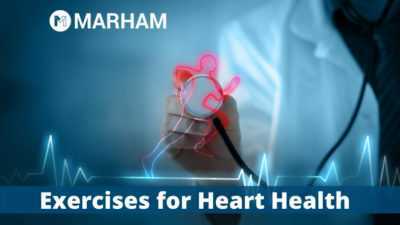Being physically active is an important part of maintaining a healthy cardiovascular system. Exercises for heart health are among the best ways to prevent heart attacks and strokes, control your weight, and prevent arterial damage caused by excessive cholesterol, high blood sugar, and high blood pressure.
It’s also true that various workouts are required to achieve total fitness. Cardiovascular fitness is most effectively achieved through a combination of aerobic and resistance training. As crucial as it is for the more efficient performance of aerobic and weight training, flexibility does not immediately contribute to heart health. Consult with the best cardiologists in Islamabad and get the best exercise plan for your cardiovascular health.
How Much And How Often Should You Exercise?
At the very least, commit to 150 minutes of moderate-intensity exercise per week (such as brisk walking). At least five days a week, that’s around 30 minutes a day. In the beginning, it’s possible to work up to that level.
You can gradually increase the length or difficulty of your workouts over time. Allow your body time to acclimate to the new routine gradually.
Slow down for a few minutes at the beginning and finish of your workout. Your body will warm-up and cool down each time. You’re not obligated to follow a set procedure each time. The more you do it, the more you’ll enjoy it!
Read here: How Can I Keep My Heart Healthy? According To Cardiologists!
6 Exercises For Heart Health:
Listed below are some of the best exercises for your heart health.
Walking:
Yes, it does appear to be a bit too simple. On the other hand, speed-walking is a terrific approach to building up your cardiovascular system. Compared to other forms of exercise, quick walking is less taxing on your joints while raising your heart rate.
Anyone and anywhere can stroll at any time. Wearing supportive shoes is all you need. Short walks during lunch or longer outings on the weekends are great ways to stay active. Listening to music, a podcast, or going on a walk with a friend are all ways to pass the time. Walking is a simple and universally accessible exercise that everyone can begin and maintain.


Weight Training:
Your heart will benefit from working out the rest of your body’s muscles. Weight training will aid in developing muscle mass and the loss of body fat. The most effective weight training occurs when you work out with your body weight, even if you go the gym. Push-ups, squats, and even pull-ups all contribute to bone and heart health by helping you grow muscle.
Swimming:
Even in the dead of winter, you can enjoy the benefits of a good swim year-round. Swimming laps or participating in water aerobics can be a great full-body workout that benefits your heart. While other forms of exercise might be hard on your joints, swimming is a low-impact activity that lets you move your body freely.
Yoga:
Yoga is good for your heart, despite what you might think, and yoga is a great way to get your muscles stronger and more toned. Even though some types of yoga can raise your heart rate, they can also help lower your blood pressure at the same time.
Interval Training:
With interval training, you can get an excellent full-body workout in about 30 minutes or less, which alternates between brief high-intensity bouts of exercise and longer, more active recovery periods. A simple example of this would be to sprint for one minute, walk for three minutes, and repeat as necessary. Burning calories and improving blood vessel function can be achieved by increasing and decreasing your heart rate.
Cycling:
The benefits of hopping on your bike go far beyond getting you from point A to point B. According to research, cardiovascular disease can be reduced by cycling, and it helps raise your heart rate by utilizing the huge muscles in your legs. Cycling has been shown to have a positive impact on your mental well-being.
Precautions For Exercise:
Here is the list of precautions you must keep in mind before doing exercise.


- If your doctor says you can exercise and pay attention to how you feel as you work out, you should have no problems.
- If you have any of the following symptoms: pain or pressure in your chest or upper body, cold sweat, difficulty breathing, rapid or uneven heartbeat, dizziness, lightheadedness, or extreme fatigue, seek emergency medical attention.
- When you’re just starting with exercise, your muscles may feel a little sore for a few days afterward. As your body becomes accustomed to it, this wears off. After a while, you may discover that you enjoy the feeling of being done.
Consult With Dr. Muhammad Naeem Malik- Cardiologist:
Dr. Muhammad Naeed Malik is an experienced cardiologist with 30 years of expertise in his field and a 100% customer satisfaction score. Book an online appointment with Dr. Muhammad Naeem Malik in just 1,500/- via Marham.pk.
| Android | IOS |
|---|---|
  |
  |
FAQs
1-What is a weak heart?
A weak heart cannot pump enough blood to meet the body’s needs. Diabetes, coronary heart disease, and high blood pressure damage or overwork the heart, leading to heart failure.
2-Which fruit is best for the heart?
The heart-healthy nutrient-dense fruits include strawberries, blueberries, blackberries, and raspberries. Antioxidants like anthocyanins found in berries help prevent oxidative stress and inflammation that cause heart disease.
3-Can your heart repair itself?
The heart may produce new muscle and possibly mend itself. But regeneration is so slow that it can’t repair damage from a heart attack. That’s why, after a cardiac attack, scar tissue replaces functioning muscle tissue.

